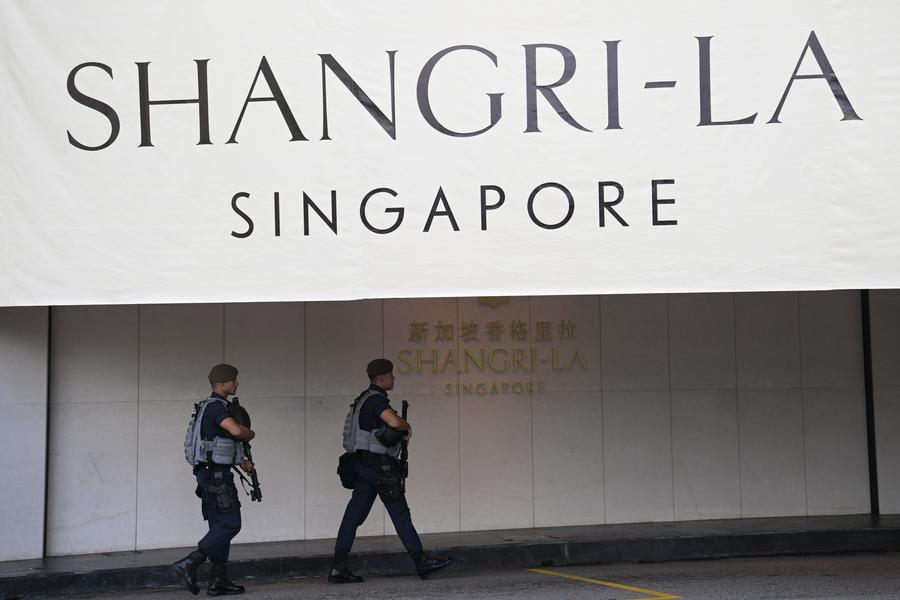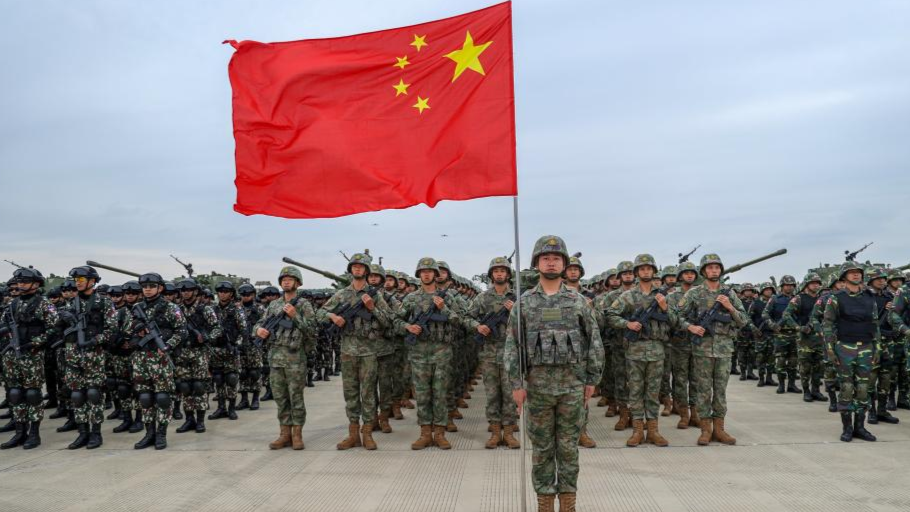
SINGAPORE - At the 22nd Shangri-La Dialogue in Singapore, the Chinese delegation said China will uphold the three global initiatives, and expressed willingness to cooperate under the framework of an Asia-Pacific community with a shared future.
During the Dialogue, Asia's premier defense summit, which was held from Friday to Sunday, participants and international analysts said China's approach to regional security - emphasizing dialogue, development, and peace - resonates with the region's priorities. In contrast, they warned that rhetoric and actions aimed at confrontation risk alienating regional partners and lack long-term viability.
Cooperation drives stability
"China's development began in the Asia-Pacific, was enabled by the Asia-Pacific, and contributes to the Asia-Pacific," said Hu Gangfeng, vice-president of the National Defense University of the Chinese People's Liberation Army (PLA), during a special session on Saturday.
Hu said China has always advanced regional security with concrete actions, properly handled and resolved conflicts and disputes, actively promoted the de-escalation and stabilization of hot issues in the region, worked hand in hand with other countries in the region to continuously maintain security and stability, promoted common development, and facilitated peace.
In recent years, China has actively participated in dialogue platforms to explain its initiatives, build trust, and foster cooperation. With support from more than 100 countries and international and regional organizations, its Global Security Initiative (GSI) had become an international consensus with global influence.

Koh King Kee, president of the Center for New Inclusive Asia in Malaysia, said that historically, China has upheld a spirit of cooperation, mutual benefit, openness, and inclusiveness.
"China's approach of seeking common ground while respecting differences, and sharing both security and development responsibilities, not only demonstrates its sense of global responsibility but also reflects the shared concerns of many developing nations," he said.
Amid rising global uncertainty and geopolitical tensions, many delegates voiced support for China's emphasis on dialogue and consultation toward resolving differences.
ALSO READ: Beijing rejects US defense chief's China remarks at Shangri-La Dialogue
U Thant Kyaw, chairman of the Myanmar Institute of Strategic and International Studies, said the GSI and related concepts can help promote solidarity in tackling challenges together.
These ideas, he noted, are instrumental in enhancing cohesion among nations, promoting mutual trust, and improving the global security governance system.
"These people-centric proposals are based on mutual respect, non-interference, inclusivity, and the acceptance of diverse cultures, which are essential for promoting a peaceful and prosperous multipolar order," said Lee Pei May, a political expert at the International Islamic University Malaysia.
Division undermines security
"Some claims are fabricated out of thin air, some distort facts, and some are outright acts of a thief crying 'stop thief' - all aimed at provoking trouble, sowing division, inciting confrontation, and destabilizing the Asia-Pacific," Hu said, addressing confrontational remarks made during the dialogue.
He added that such actions not only run counter to the trend of the times but also "win no public support and are doomed to fail".

Liu Wanxia, a professor at the PLA's National Defense University and a fellow delegate, told Xinhua that the so-called US "Indo-Pacific Strategy" - designed to shore up alliances and contain other countries - is destabilizing the region.
Several scholars argued that military build-ups and adversarial rhetoric are increasingly out of touch with the region's realities.
Observers noted that China's sustained advocation for a vision of common, comprehensive, cooperative, and sustainable security stands in stark contrast to the confrontational stance of some Western powers.
Instead of exclusion or pressure, they said, China offers a framework based on dialogue and mutual respect.
Veronika Saraswati, director of the Indonesia-China Partnership Studies Institute, told Xinhua that cooperative security offers the most reliable foundation for long-term peace.
READ MORE: Chinese military delegation to attend Shangri-La Dialogue in Singapore
"Cooperative security is the correct approach to ensuring long-term stability in any region, as it fosters trust, interdependence, and stronger conflict-resolution mechanisms compared to unilateralism or military deterrence," she said.


